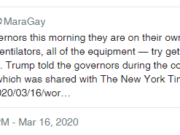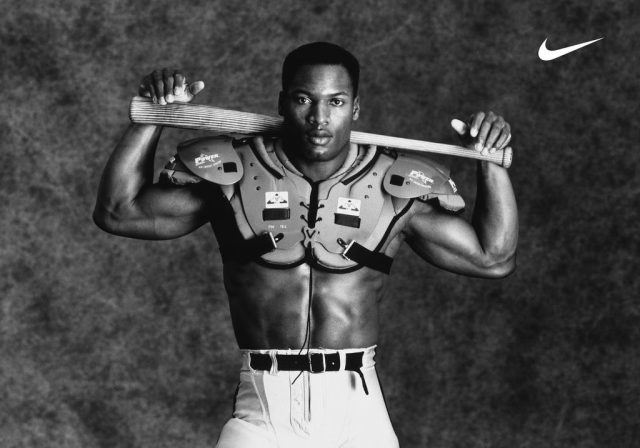Soccer fans are passionate worldwide. The game many call “futbol” is also popular in the United States. Some of my best friends are soccer fanatics, and my daughter is a college soccer player. When the U.S. Men’s Soccer team lost and was eliminated from making the 2018 World Cup, fans began gnashing teeth, whining, crying, and making excuses.
Stupid me, I piped in on one tweet and pointed out what I thought was an obvious fact. America’s best male athletes don’t play soccer. That’s why the U.S. Men’s soccer team does not match up well in the World Cup.
I only ran into the subject because a legal analyst tweeted out something about it:
Why is @ussoccer so terrible? 330 million people. Every kid plays soccer. And we can't even qualify for the World Cup? Appalling.
— Jeffrey Toobin (@JeffreyToobin) October 11, 2017
My return tweet seemed to kick off a firestorm.
our greatest athletes play other sports. Our competitor countries, their greatest athletes play soccer.
— Rich Kelsey (@RichKelsey) October 11, 2017
Ironically, Mr. Toobin doesn’t know much about the law either. In this case, he exposes the same top-layer-of-the-onion analysis that is often his legal trademark.
Even though I have been a youth sports coach and organizer for decades, we don’t usually do sports on this site unless it ties directly into a political issue, such as the ill-conceived anthem protests. This one, however, is a bit of a lay-up … or an open goal. The topic is all about markets, and in the US, there is no meaningful market for our top male athletes to play soccer.
You cannot regulate around the market, and you cannot create parity and equality of outcomes that match the superior with inferior.
Tacticians and soccer lovers will gravitate toward analyzing the games, the strategy, the training, and the measures that this pool of players could have done to be better. All of that is fair game for discussion because even a team with limitations can have a measure of success in the right structure, particularly if the right group comes together perfectly. Clearly, this team didn’t maximize the talent it had. America second string should have at least qualified for the World Cup.
That’s not the issue here. Let’s walk through the real problem with U.S. Men’s soccer.
U.S. men’s soccer simply does not have America’s most elite athletes. Period. We have no market driving them to the sport, and we have no culture elevating the sport above all others.
My daughter plays college soccer and loves the sport. But while I have seen her watch hundreds of baseball games and football games on TV, I have never once seen her look for a good men’s soccer game to watch.
Americans don’t hate soccer, they simply love other sports much more … and that love translates to money for the athletes.
You cannot remove from the population of any country it’s greatest, strongest, fastest, most athletic individuals and then ask that country to compete with countries where the single focus of their culture is that same sport, and those countries do use their best athletes. Even Americans can’t do that.
Some of the criticisms of my short tweet suggest that American football players or basketball players aren’t suited to soccer. Internet critics say the skills are all different.
Of course, the skills are different. Of course, you can’t take Bo Jackson at 23 years-old and say, here’s a soccer ball and go compete against Germany’s best players who have been training in the game since they could stand up. That is NOT the relevant analysis or inquiry.
Certainly, not every sports skill is a function of “athleticism.” I get that too. Not all of the world’s greatest athletes can be great at different sports, and athleticism alone, or the lack of it, doesn’t mean one can’t compete in his or her sport. David Wells of the New York Yankees was a highly-skilled, left-handed pitcher. He was as athletic as the maple tree in my front yard.
In some sports, however, athleticism is a critical component of success. This includes speed, strength, flexibility, dexterity, etc. Soccer is just that type of sport. When you have the most athletic set with whom to work, skills coming from that set tend to be better.
The gentleman below also falls for the false notion that America lags because its “skills” are not as strong as other countries, even though in his mind the players are as athletic. Here’s a pro tip, athletic-related “skills” tend to be fewer among people who are less athletic.
This doesn't explain it either, although often repeated. The problem is in the skill side, not athletic side. https://t.co/PBs9wW0qUc
— The real chris beck (@SubBeck) October 12, 2017
What this tweet suggests is that other countries have some secret book of skills they teach their players that Americans do receive. They do not. I joke about this in the youth sports, travel baseball world too. There, for-profit organizations work very hard to convince parents that paying their organization 3 times as much money will be worth it because of the “training,” as if the organization has a secret book of baseball.
In America, we teach the same techniques, touches, ball skills, and drills other countries teach too. What other countries do have is vastly superior professional soccer leagues where the best players from the most athletic set, play each other. This further sharpens their skills and pushes those players to improve and improvise on strategy and tactics as well. Again, what makes those skills stronger is “better players” playing each other. That is again, a function of having the best pool of available athletes for your team and league.
America does that too … in Baseball, Basketball, and football.
What if the NBA, NFL, and MLB didn’t exist? What if every minor-league system feeding those professional, American sports didn’t exist? What if every Division I athletic sport didn’t exist, except soccer? What if the over 10,000 professional American athletes playing the three major sports and engaging in Division I, top-tier, athletics outside of soccer just played soccer?
What if the best coaching minds in America, only coached and trained soccer?
What if the hundreds of billions of dollars in investment, training, infrastructure, and revenue were all funneled primarily, if not exclusively to soccer … or “futbol?”
What if OJ Simpson, Barry Sanders, Emmitt Smith, Herschel Walker, or Bo Jackson got up every day beginning at age 2 and our entire culture pushed them to play only soccer?
The NFL alone has 15-20 guys on every roster with more speed, strength, and athleticism than nearly all of the best soccer players on any team in any country. Heck, every one of those teams has another 15-20 guys just as athletic on their practice squads. The difference is, none of these guys play soccer. What if those men were playing soccer from day one, developing those soccer skills to match their vastly superior athleticism? Some great segment of those 10,000 athletes would be damn fine soccer players.
I am not trying to downgrade or disrespect US soccer players. Those men are great athletes and they are great at their sport. They just are not the best athletes we have, collectively.
The soccer players we have are the best athletes we have playing a sport that falls behind four or five other sports in popularity. That includes watching people drive around a track in circles. The complete lack of commercial viability and cultural love for the game drives our top talent from it. So low on the priority list for American is soccer, that in the famous Bo Knows commercials, the “Soccer Bo” was only shown in Europe. The Cricket Bo got in, but only a split second image of a soccer ball appeared. That was nearly 30 years ago, but little has changed for the commercial value of US Soccer.
Most countries don’t lose nearly as a large a slice of their best athletes to other sports because most countries don’t have multi-billion-dollar sports industries other than soccer.
None of this should be controversial. Indeed, historical, and current examples prove the theory.
One young woman tweeted the following at me:
You mean our greatest male athletes, right?
— That Clerk Rachel 🗳️ (@badachie) October 11, 2017
Her tweet accidentally proved my point. Why is the US women’s soccer team so great, but the men are not?
The women’s Olympic and World Cup soccer is essentially the pinnacle of women’s team athletics in the United States.
While we do produce a very small WNBA, the numbers of players lost to that sport is di minimis, just like other countries lose a few athletes to other sports too. In short, there is no major sports competition to drain prospective women soccer players from the US soccer pool of possible players. To the contrary, we funnel our best athletes to play soccer. Our women soccer teams seem to have the “skills” to compete.
Is it the suggestion of the “skills” crowd that we are teaching our women secret skills we do not teach out men?
Our women’s programs attract all but the very thinnest slice of our best athletes to soccer, and those women have enormous coaching and training support because the resources are not diverted elsewhere. What is the result, our women compete fine, and are at the top of the women’s world soccer food-chain.
Countries are different, and cultures are different. Money, fame, fortune, celebrity, and cultural expectations push America’s greatest athletes into different sports. That’s the reality. When you do not have the top talent in your pool, you will always struggle against countries and teams who do.
If one were to remove from Germany, Italy, Spain, or Brazil, the same proportion of world-class athletes from their soccer programs that America loses from its soccer program, America could send the Division I, NCAA men’s soccer champions out and compete fairly against those countries.
Our world-wide soccer friends don’t want to hear this, but you are not better than America’s best, you are simply a bit better than America’s next best.
American soccer can work harder with the talent it has, and no one disputes that it can do better. It has qualified for the World-Cup every year since 1986 until this past year, even with our next best. However, until America ditches all the other sports she prefers, and our country focuses primarily on soccer, she will never have its best male athletes, trained for a lifetime, on the pitch.
It’s not an excuse … it’s a fact.
One angry tweeter wrote me and said, “it’s not that Americans aren’t as athletic and fast, it’s that they aren’t as good.”
They aren’t as good my friend because they are not the best we have. They aren’t faster or stronger my friend because they aren’t the fastest and strongest we have.
Here is a better analogy:
Women’s NCAA Division III soccer has some amazing athletes. In fact, D-III women’s soccer comes much closer in parity with D-I women’s soccer than say, D-III Football does to D-I Football. However, if you take the top D-III women’s soccer team and play them against the top D-I team, the D-III team is going to lose 9 out of 10, if not 10 out of 10 times. (Even in soccer, where painful 0-0 games prevail, and where a team can totally dominate whole game and lose on one dumb play or mistake.)
Why?
All of the players at each level are great players with exceptional skills. It’s just the D-I teams are bigger, stronger, faster, and in some cases, more skilled BECAUSE of the athleticism and the higher-end competition they face in every match.
When the U.S. Men’s Soccer team plays World Cup teams, it’s like running a D-III program out to play a D-I program and wondering why we never really seem to come out on top. Americans who understand sports know immediately and intuitively why D-I teams are better than D-III teams.
It’s not that the D-III athletes don’t work hard. Some work harder. It’s not that they don’t play smart. Some play smarter. It’s not that they haven’t played the game their whole life and don’t understand it. It’s not that the coaching is always second best. It’s that the D-I teams have the best of the best athletes, in nearly every circumstance.*
Men’s American World Cup Soccer does not have the best of the best, and it never will. However, it is asked to compete against the best of the best of other nations, and doing so is often too hard a challenge even for Americans to come out on top.
This is not complicated. Soccer is a great sport, but the American market does not value it as it values others. As a result, it does not attract our best. You can’t fool free markets.
*Note: Please, don’t write me with some example of a great player emerging from D-III to be way better than everyone else. These discussions are about pools of players and entire rosters. Many D-III programs have outstanding athletes who rise above and reach greater success individually.
Author: Richard Kelsey
Richard Kelsey is the Editor-in-Chief of Committed Conservative.
He is a trial Attorney and author of a #11 best-selling book on Amazon written on higher education, “Of Serfs and Lords: Why College Tuition is Creating a Debtor Class”
Rich is also the author of the new Murder-Mystery series, “The ABC’s of Murder,” book one is titled, “Adultery.”
Rich is a former Assistant Law School Dean and Law Professor. At Mason Law Kelsey conceived of, planned, and brought to fruition Mason’s Center for the Protection of Intellectual Property, known as CPIP, drawing on his expertise as a former CEO of a technology company specializing in combating cyber-fraud.
In 2014 he was elected by the graduating class as the faculty speaker at their graduation.
He is a regular commentator on legal and political issues in print, radio and on TV. Rich has appeared on hundreds of stations as a legal expert or political commentator. He provided the legal analysis for all stages of the Bob McDonnell trial and appeal for numerous outlets including NPR and WMAL.
Rich also writes on occasion for the American Spectator and CNSNews.com.
In his free time, Rich is part of the baseball mafia of Northern Virginia, serving on numerous boards and as a little league and travel baseball coach.
His Twitter handle is @richkelsey.





























